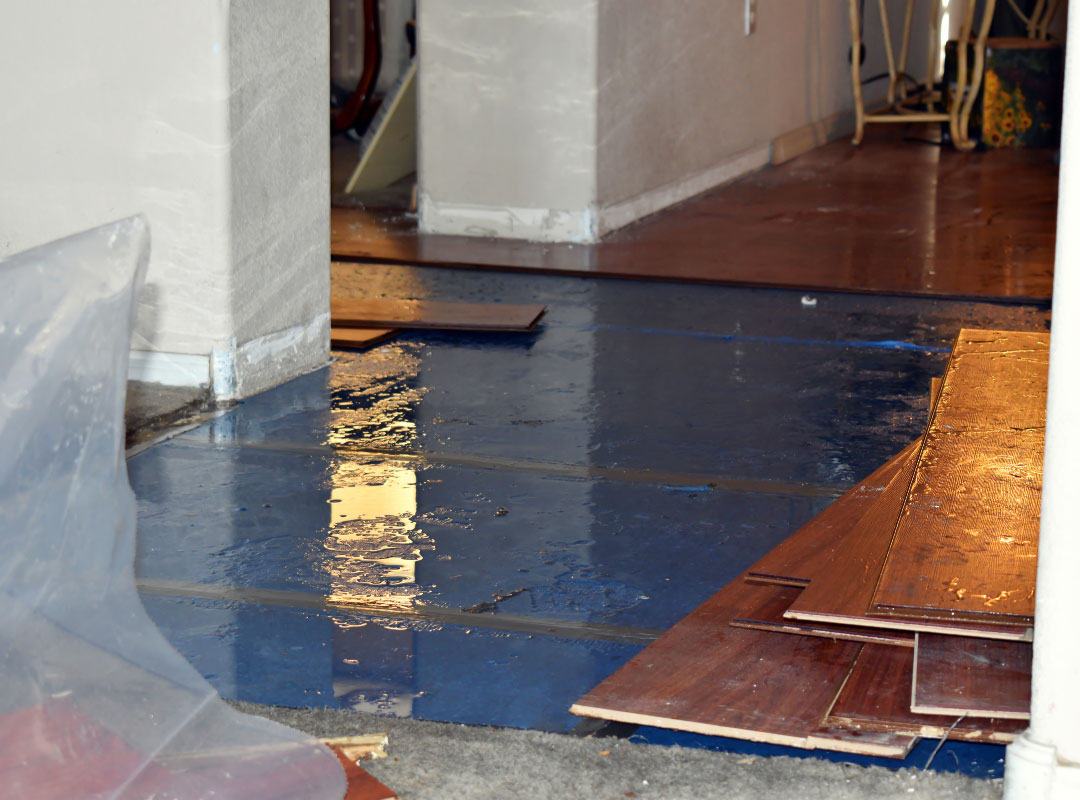Best Flooring for Queensland Flood Zones: Does Epoxy Withstand Water Damage?

If you're in the unfortunate situation of recovering from flood-related water damage to your Queensland property or thinking ahead to future-proof it, then epoxy is a flooring solution that may stand you in good stead. But, as with anything, not all epoxy flooring solutions are created equal. Let's go through some flooring considerations that will provide you with a better base for dealing with potential flood and water damage in your residential, commercial or industrial property.
The impact of water damage on epoxy floors
If you have an epoxy resin-coated floor, then once the water has dissipated all you may need to do is give it a thorough disinfecting clean. An epoxy floor that has been coated by a professional epoxy specialist is more likely to be impervious to water, so the concrete is protected.
This does, however, relate to surface water. Anything that enters from the side or underneath it can have a whole lot of separate issues, including hydrostatic pressure. Concrete is by nature porous, so water will be drawn in and trapped. Once a concrete substrate becomes saturated by water, it's more prone to cracking, contamination and odour, which will cause it to fail.
Good epoxy vs Bad epoxy
This is where you'll find out the difference between "good" and "bad" epoxy. Home DIY applied epoxy, or epoxy flooring provided by a less than reputable supplier, is more likely to leave your concrete exposed at the edges or, due to the coating not being thick enough or robust enough, won't prevent water damage as water seeps through it.
An epoxy product applied by a reputable epoxy specialist is more likely to provide a smooth and non-porous barrier to water, dirt and bacteria entering the underlying concrete substrate. Surface water will need to be removed and the epoxy cleaned and disinfected, but this won't impact the finish, provided it is done promptly. It also won't seep into the underlying concrete if the epoxy is applied to the base of the room's wall, to prevent water from getting under it as the water level rises.
The impact of water damage on carpet and timber floors
It's safe to say that when the carpet gets wet, it harbours a lot of bacteria, even once dried out. The drying process can be lengthy, and the professional cleaning required can be expensive.
With floorboards or timber, any extensive flooding or prolonged exposure will likely cause permanent water damage and swelling. The only avenue for remedy will be removal, disposal and replacement, and the underlying base will need to also be cleaned and disinfected after the surface flooring has been removed to destroy bacteria.
Future-proof your flooring
Here at Tough Floors, we understand the devastating impact that flooding can have on homes and the lives of those directly, and indirectly, affected by it.
Regardless of whether you have a residential, commercial or industrial property, an epoxy flooring solution could provide greater protection and durability against the impact of flooding and water damage - provided it's been applied by a professional epoxy flooring specialist in Brisbane using reputable, quality epoxy products.
For knowledgeable and prompt advice and a free, no-surprises quote to prepare or replace your property's flooring after catastrophic water damage, get in touch today. We're here to help.

